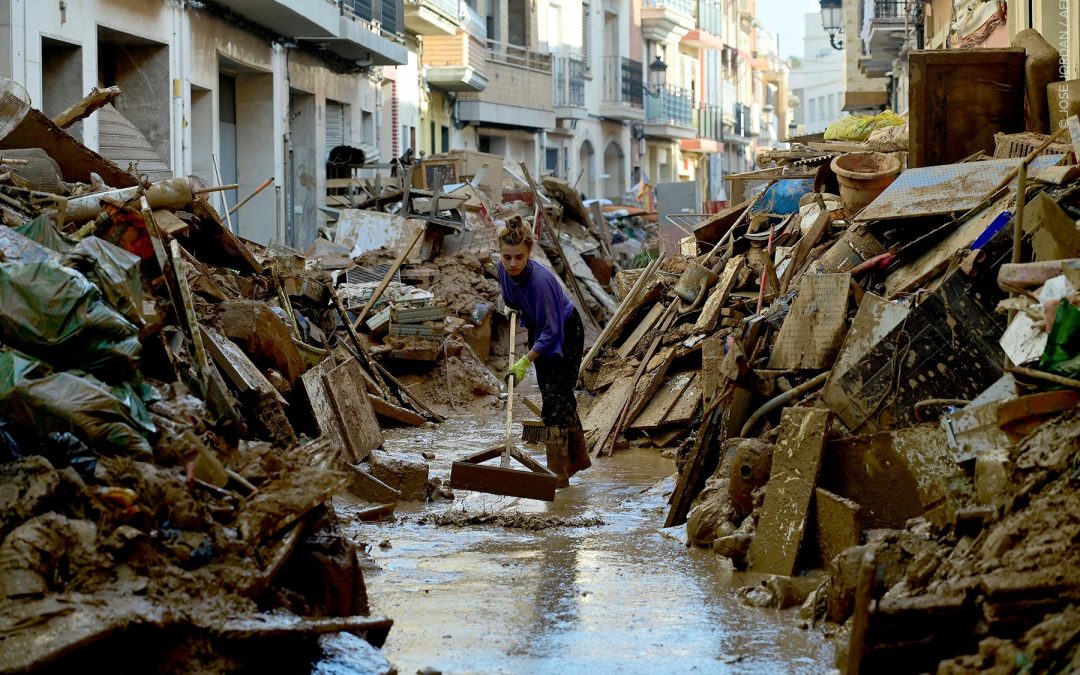The way to use EU funds for disaster recovery is opened by the European Parliament after the adoption of two relevant legislative acts today by the Plenary of the Parliament, which meets in Strasbourg.
Once these are approved by the EU Council, funds from the Regional Development Funds will be allowed to be used more flexibly to repair damage after natural disasters and the social funds will be able to finance healthcare and basic needs, while damages for farmers, foresters and SMEs in the agriculture and forestry sector can be compensated for.
The purpose of both legislative acts is to achieve “rapid EU financing of reconstruction measures after natural disasters that occurred after January 1, 2024”, as stated in the relevant announcement. After all, both proposals for these European legislative acts were submitted “in the wake of the floods and fires in Central, Eastern and Southern Europe in September 2024”.
Funding for reconstruction
Specifically, the Emergency Regional Support for Reconstruction (“RESTORE”) proposal allows EU countries to more easily channel resources from the European Regional Development Fund (ERDF) and the Cohesion Fund to disaster reconstruction. In this context, EU resources could fund recovery projects up to 95% of their total cost, while additional pre-financing of up to 25% of the total amount will also be provided for those in need of quick liquidity.
The proposal will allow for more flexible use of European Social Fund+ funds to finance short-term work programs, support access to healthcare and meet basic needs.
The flexibility measures will apply to disasters occurring in 2024 or 2025. In 2025, changes brought by the legislation are expected to mobilize funding of €3 billion, with front-loaded payments for the 2025-2027 period.
The “RESTORE” proposal was approved with 638 votes in favor, 10 against and 5 abstentions.
Recovery for agriculture and forestry
Additionally, EU countries with unspent money from rural development programs will be able to speed up the use of these funds to compensate for losses suffered by farmers, foresters, and SMEs operating in these sectors and who suffered at least 30% of their productive capacity. These funds will be paid out in lump sum payments and will be fully covered by EU funds. Payments to beneficiaries will be made by the end of 2025.
The reinforcement proposal from the European Agricultural Fund for Rural Development (EAFRD) was approved with 644 votes in favor, 6 against and 3 abstentions.
Both legislative acts must be formally approved by the Council and the “RESTORE” regulation will come into effect one day after its publication in the Official Journal of the EU and the EAFRD legislation on the day of its publication.
Declarers’ statements
“This legislation is very important for regional and local authorities in areas affected by natural disasters,” stressed the co-rapporteur for the “RESTORE” regulation, MEP of Poland and the EPP Group, Andrzej Buła. “It shows that the EU can move quickly and flexibly and that we can provide real help to our European citizens. This assistance can now become immediately available,” he said.
“A day after the Parliament expressed its full support for the victims of the unprecedented cyclone in Mayotte, we approved the RESTORE regulation to ensure we are capable of helping the victims of this disaster and others like it, to rebuild what they lost,” said the co-rapporteur for the “RESTORE” regulation, MEP of France and the Left Group, Younous Omarjee. “We must adapt our disaster response and regional policy to the new realities of climate change. The restoration will allow us to respond quickly and effectively to future disasters,” he added.
“Several countries were affected by natural disasters in 2024. The tangible aid provided by the EU is absolutely necessary for both member states and citizens. Today’s decision will help many member states to release unused funds faster for those who urgently need it,” said the rapporteur for the European Agricultural Fund for Rural Development regulation, MEP from the Czech Republic and the Conservative Group, Veronika Vreciova. (17/12/2024)
Chrys. Bikatzik
Photo: EP/Multimedia Center
 go to the original language article
go to the original language article
